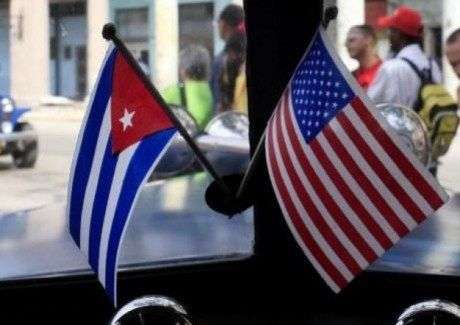Cuban authorities have freed 36 “persons over which the Government of the United States had shown interest,” according to the words of President Raul Castro on December 17 – and that in Cuba they are usually called dissidents.
The number given by the US government in recent ads restoration of relations between the two countries amounted to 53 and from Wednesday, the Cuban government has been gradually releasing these people, in compliance with the agreement and after the upcoming high-level talks, which will begin next January 21.
According to the press release of one of the organizations opposing the government on the island, the UNPACU, Patriotic Unión de Cuba, 29 of the released belong to their ranks and provide a list of names with their respective affiliations.
However, the Cuban government has made no official reference to the subject, but the sectors of dissent and foreign media follow the issue with keen interest.
Earlier this week, the State Department spokesman, Jen Psaki, confirmed that there were already some of the agreed releases, though he declined to disclose the number or identity of those released at the time. Psaki, at a press conference, said the US government “is not trying to put bigger target in Cuban dissidents, but wants them released.”
So far, the issue of these recent releases has been treated with confidentiality by both governments, who seem very interested in maintaining prudence in this mutual approach.
Therefore, the national security adviser in the White House, Ben Rhodes, just said in his Twitter account Friday that “The United States welcomes the important and continuous release of prisoners in Cuba-so good to see people reunited with their families.”
The released so far, with their families, have made statements to several foreign news agencies, which have agreed that most are on parole and medical parole. These dissidents, according to the Cuban government would have served penalties for common crimes, although most are accused publicly of subordinating to Washington in their work of opposition.
Recently, the repeated arrests of the artist Tania Bruguera and some Cuban dissidents who wanted to participate in the performance of this Cuban artist “Tatlin’s Whisper # 6” triggered criticism of the Obama administration for its approach to Cuba and even prompted a statement from State Department condemning the police behavior of the Cuban government. However, US officials dismissed that this would hinder negotiations between the two countries.
In this regard, Deputy Secretary of State for Western Hemisphere Affairs US, Roberta Jacobson, will travel to Havana on January 21 with a high-ranking delegation to formally begin talks with a view to the normalization of diplomatic relations between both countries.










